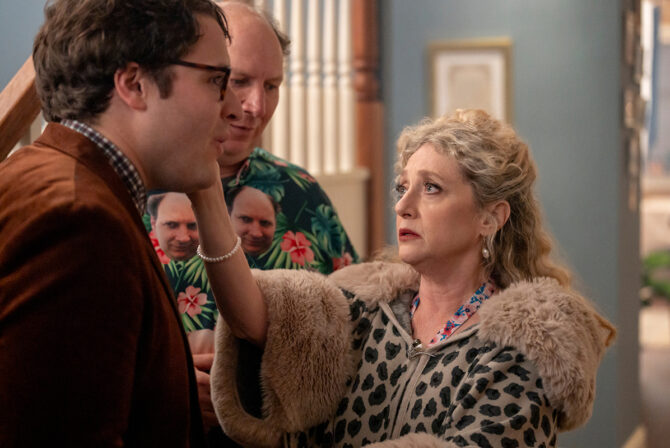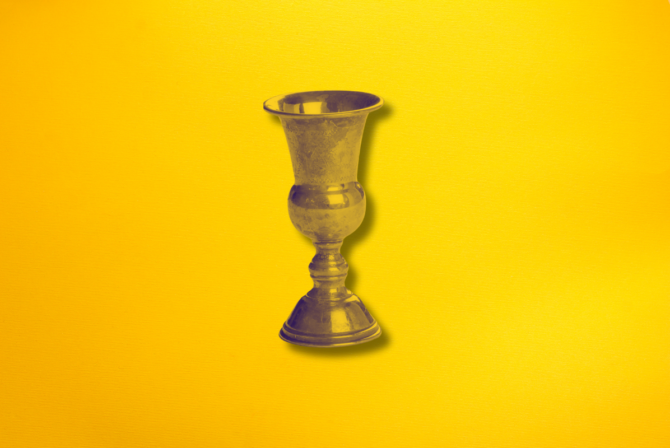In no particular order, these were my daughter Hannah’s first words: “no;” “dog;” “Hugo” (the name of our dog); and my name, “Sarah.”
My husband was initially jealous that, by her first birthday, Hannah could refer to both the dog and me by our names, yet didn’t do the same with him. He’d repeat his name to her over and over, often throwing in “dada,” “papa,” “father,” and “daddy” to see if those would catch on instead. I’m pretty he also added “vater” and “tate” to the mix a few times, just in case German or Yiddish was more her speed.
And while it took a few months, “daddy” did indeed become a part of her everyday vocabulary. At that point I figured it was just a matter of time before “mommy” followed suit, especially since Hannah heard that word a lot in daycare. But every time someone referred to me as such in her presence, she would stare at them and then shake her head. “It’s Sarah,” Hannah would mutter. And then she began calling my parents by their first names, too.
Now that she’s almost 4, my daughter likes to mix it up. On a single day I can be “mommy,” “mama,” “mom,” and “Sarah,” although I still haven’t figured out what makes her choose one name over the others at any given moment.
Your daughter calls you by your first name? I get that question a lot, from friends, relatives, and acquaintances. Most seem to think that Hannah’s use of my first name is cute or charming, an eccentricity that either she came by organically or that I passively encouraged by never insisting she stop. But I’ve also gotten my fair share of unsolicited tips from other mothers about how they got their children to drop the first name and switch to “mommy” exclusively.
I’ve never put any of their suggestions into practice, though, in part because of my own long-held aversion to labels. It took me months to start calling my now-husband my fiancé after we got engaged, and even longer after our wedding to refer to him as my husband without reflexively laughing. So it seems only fitting, and fair, that Hannah calls me Sarah. After all, it’s not like her father and I call her “daughter” exclusively, although that may be because after all the hours we spent choosing her name, we want to get as much mileage out of it as we can.
One of the first commandments that I remember learning in synagogue is, “Honor thy father and thy mother.” According to the rabbi at my family’s Reform temple and the college kids that taught our religious school classes, honoring your parents was achieved through actions both large and continuous (respect their wisdom and authority) and small and specific (don’t fight about bedtimes and eating vegetables, and don’t fight with your siblings). I often failed on the specific tasks, but never struggled to respect my mother and father in the larger, less tangible but more important way.
According to certain interpretations of Jewish law, there’s another very specific way to respect your parents: Don’t call them by their first names. According to one rabbi, “[I]t is advisable not to call one’s parents by their first name in order to maintain one’s own personal sense of respect for them. This law even applies after the parents are no longer alive.”
These words gave me pause. I want my child to obey the commandments and respect the law of our religion, but no matter how much I thought about it, I couldn’t agree that Hannah calling me by my first name was a sign of disrespect. Part of that might be because, if her teenage self bears any resemblance to my teenage self, much larger storms about respect and attitude loom on the (very distant) horizon. So maybe I’m just saving my strength.
But the biggest reason is this: I want Hannah to always have the words she needs to express herself, ask questions about what she doesn’t understand, challenge what she thinks is wrong, and make sense of the world and her place in it. These are not revolutionary goals, but sometimes they feel that way; our society too often devalues, disbelieves, or dismisses what girls and women say simply because they are girls and women. That’s happened to me, and virtually every woman I know, and one day, my daughter might know what that feels like, too.
But she’ll also know this: that her voice has always had value, from the very first words she said, and from the very first notions and assumptions those words challenged.
Read More:
9 Jewish Baby Names You’ve Never Heard Of but Are Going to Love
Parents Share Jewish Day School Tuitions in Public Spreadsheet
This is Why I Hate School Fundraisers







